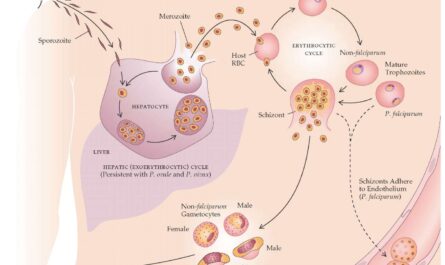Researchers at Washington State University have found evidence suggesting that a predisposition to obesity may be encoded in the molecular processes of human cells. The study, which focused on a set of 22 twins, discovered an epigenetic signature in cheek cells that was present only in the obese twins compared to their thinner siblings. This finding may pave the way for a simple cheek swab test to identify an obesity biomarker and enable earlier prevention methods for a condition that affects 50% of U.S. adults.
According to the researchers, obesity is more complex than simply consuming food. They believe that their work indicates a susceptibility to the disease and molecular markers associated with it. The study focused specifically on twins to eliminate the role of genetics and instead concentrate on epigenetics, which refers to molecular processes that influence gene expression but are separate from DNA.
Significantly, the epigenetic signature was found in cheek cells rather than fat cells, suggesting that the obesity marker may be present throughout the entire human system. This systemic nature also indicates that something may have triggered obesity susceptibility early in one twin’s life or that it may have been inherited by one twin and not the other.
For the study, lead author Glen Duncan, director of the Washington State Twin Registry, worked with Professor Michael Skinner to identify 22 pairs of twins, both identical and fraternal, who were discordant for obesity. One sibling had a body mass index (BMI) of 30 or higher, which is the standard for obesity, while the other sibling had a BMI in the normal range of 25 and below.
The research team analyzed cells from cheek swabs provided by the twins and found similar epigenetic changes in the DNA methylation regions of the cells from the obese twin siblings. DNA methylation refers to the attachment of molecular groups made of methane to DNA, which regulates gene expression by turning genes on or off.
Although this study is a proof-of-concept, more research is needed with larger groups of people to develop a biomarker test for obesity. The ultimate goal is to identify individuals earlier in life, before they become obese, so that healthcare providers can implement interventions such as lifestyle changes, medication, or a combination of both.
“We would like to have some kind of preventative measure instead of our usual approach, which is treatment,” said Duncan. “It’s a simple fact that it’s better to prevent a disease than to try to treat it after you have it.”
The research was funded by the John Templeton Foundation and the National Institutes of Health.
*Note:
1. Source: Coherent Market Insights, Public sources, Desk research
2. We have leveraged AI tools to mine information and compile it




